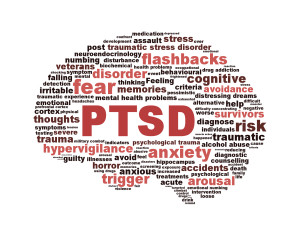Impact of Bullying (Mobbing)
The impact of Mobbing (bullying) is comprised of many losses. Loss can affect health, work relationships, family stability, personal and professional identity, income and finances, job, career, professional reputation and ability to find work. It can play havoc with your confidence, belief in fairness and justice and your sense of security about the future. Victims of bullying (mobbing) often experience a profound sense of shame (guilt is “I’ve done something bad,” shame is “I am something bad”). You can find yourself living out a shame tainted life including negative reactions from others all the result of disproved and or unproven allegations. Often there is no opportunity to bring resolution to the damage done to the perceptions people have of you.
#1 Physical and Emotional Health
- In the last 10 years research shows a strong connection between negative physical and psychological health consequences and being a victim of bullying (mobbing).
- People who have been subjected to bullying (mobbing) within the church have experienced ‘trauma’. Trauma is cumulative – the longer the period of time it has been happening, the greater the impact on the person.
Steve Vensel[i], who has studied bullying and mobbing in churches, found that PTSD (Post-Traumatic Stress Disorder) is always present in victims of bullying (mobbing). Bullying (mobbing) victims experience the same range of problems as victims of torture, war, natural disasters and rape; refugees, combat soldiers and first responders to emergencies and disasters. PTSD leads to impaired immune function making victims vulnerable to flare ups of pre-existing medical conditions and the development of new ones. Their symptoms remain for many many years.
Symptoms of PTSD
These symptoms need to be present at least six weeks after the bullying (mobbing) occurs.
- Recurring and intrusive memories of the bullying
- Recurring nightmares
- Physical ‘fight or flight’ reactions to situations that are trauma ‘triggers’
- Avoiding thinking about or talking about the bullying
- Reduced ability to feel tender emotions
- Persistent anxiety and anger outbursts
- Hyper vigilance – difficulty falling or staying asleep; constantly “on guard”; “jumpy” or easily startled.
- Isolation – Try to avoid places or people that remind you of the bullying (mobbing).
- Difficulty concentrating
- Breakdown of personal relationships
#2 Families
- Families are impacted just as much as the person who was bullied (mobbed). This is sometimes referred to as secondary victimization.
- Family dynamics change.
- Members of the family can become preoccupied with the bullying (mobbing) and need to constantly talk about it.
- Family members may question the severity of the bullying (mobbing).
- Because of the prolonged time frame families may be stretched to the limit in their ability to offer support to the person who has been victimized.
- Children and especially teen who witness the bullying behaviour carry the scars for a long time and often have their perceptions of God and church significantly damaged.
How Victims Respond to Mobbing and the Impact it has on Family Members
The three most common responses are fight, flight or freeze.
Freeze
- This is the most common response. The victim does not do anything to deal with what has happened.
- They emotionally distance themselves from the situation, feel powerless and they isolate themselves from everyone including family members. As a result, they are unable to meet the emotional, relational and physical intimacy needs of their spouse.
Flight
- The main characteristic of this response is avoidance behaviours. Some examples include sick leave, keeping a low profile at work, having as little involvement as possible with those involved in the bullying (mobbing); seeking transfers to another church, resigning, and in extreme situations, committing suicide.
- At home, they avoid talking about it which can be frustrating for family members who want to be supportive.
Fight
- This is the least common response. It involves being assertive or seeking help.
- Seeking help includes making formal reports to leaders or denominational representatives. Research shows that when organizational leadership gets involved the situation is more likely to worsen for the victim than improve (50% received no help and 25% were threatened with dismissal – a ‘blame the victim’ response).
- Assertiveness involves directly confronting those involved in the bullying (mobbing) and requesting that they stop. Those who are assertive are more likely to experience anger and irritability which spills over into family relationships.
#3 Relationships within the Church Community
- Witnesses of the bullying (mobbing) are often afraid to say anything about what they are seeing because they fear becoming the next victim or they have the attitude that those in leadership are the ones who should deal with the problem.

- The person experiencing the bullying may be isolated and not receive the support they expect from those they have good relationships with. They experience ‘double betrayal’ – by the leaders of the church or denomination and by those they expected to support them.
- The victim and their family do not know who they can trust or talk to which increases isolation.
#5 Career and Work Performance
- Changing ‘jobs’ is not always an option due to factors like job opportunities for a spouse, schools for children, proximity to extended family and social networks of friends.
- As a result of anger, exhaustion, hopelessness or reduced commitment, victims cannot or do not produce the volume of work or the quality they produced prior to the mobbing leading to job dissatisfaction.
- Re-employability can be affected because of ‘labeling’ by the denomination or influence of those giving job references to new prospective churches.
#6 Relationship and View of God
- Bullying (mobbing) experiences can have a significant negative impact on a person’s world view and their view of God including their belief of God as a God of justice.
- Withdrawing from God who is the ultimate source of healing can have an impact on the recovery process.
#7 Professional and Personal Identity
- These two identities are often closely tied in North America.
- In the early stages of bullying (mobbing) threats to identity are linked to the loss of a sense of personal safety and self-doubt about the accuracy of your perceptions about what is happening in the church.
- As the bullying (mobbing) continues, victims know they are targets and threats to identity are linked to being disbelieved, blamed and negatively labeled. Attacks on personal and professional reputations happen at this stage.
- Because of the degree of deception and manipulation, victims are unable to describe accurately what has happened resulting in a sense of shame and powerlessness.
- Victim blaming results in deeper identity crisis (Remember these are high achievers who are being targeted and blamed for the problems).
- Later in the mobbing experience, threats to identity are linked to loss of a sense of being valued as a leader or professional, loss of career and loss of beliefs about the world and God as just and fair.
- Some even experience a loss of belief about their ability to recover.
[i] http://stevevensel.com/stevevensel.com/


The article on church bullying peaked my interest. They opened my eyes to another area in individuals lives where bullying is prevalent. I am working on doctoral degree in Industrial Organizational Psychology (I-O). My dissertation proposal is on Volunteers bullied in nonprofit organizations. My focus in on antibullying laws and policies for the volunteers, since there are none. I would like for you to share more literature with about church bullying to help me focus to a specific areas in nonprofit organizations. Reaching out to areas where bullying appears to be isolated is the church. Thank you,